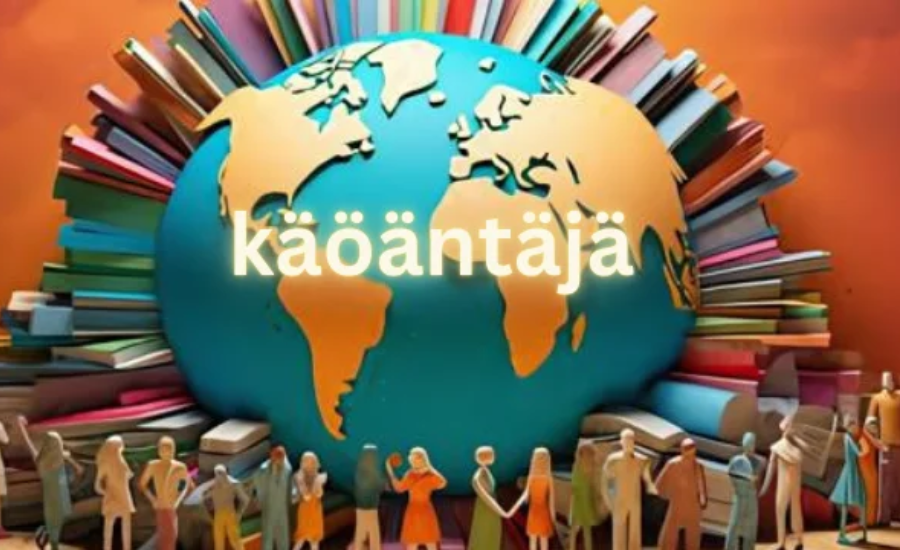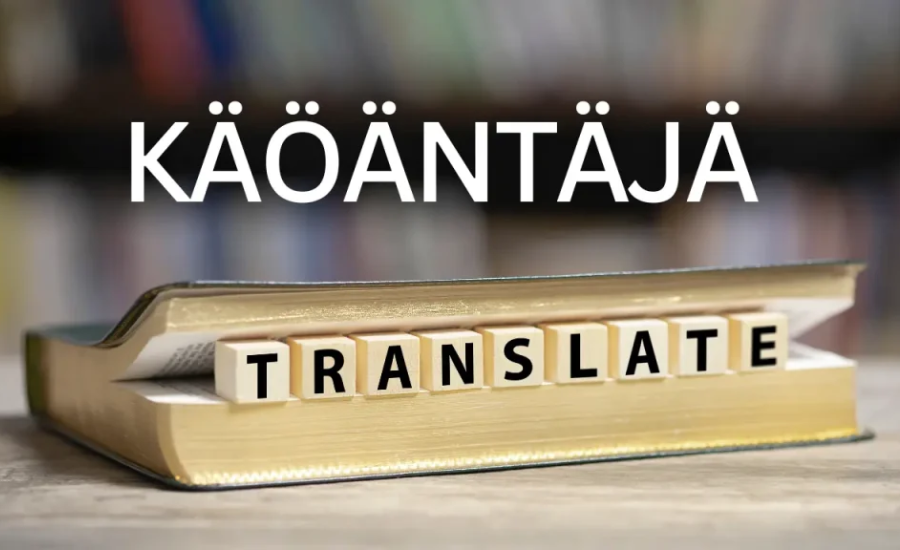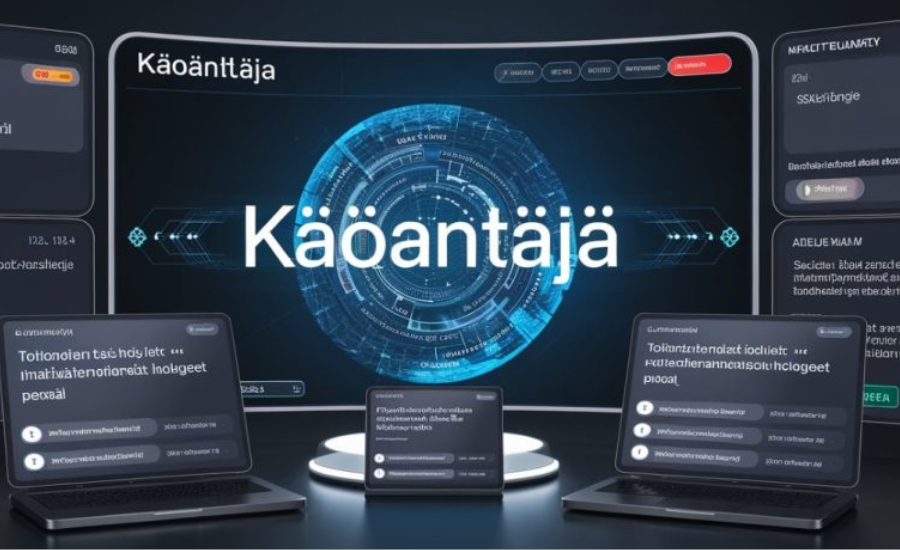
The Vital Role Of A Käöäntäjä: Bridging Linguistic Gaps In A Globalized World
In today’s increasingly interconnected global landscape, bridging linguistic gaps has become a critical necessity. As interactions among individuals, businesses, and governments expand across borders, effective communication is key. This is where the role of a “käöäntäjä” (interpreter) becomes indispensable. Interpreters are often the unsung heroes who ensure the seamless exchange of ideas, information, and cultural nuances across different languages, thereby facilitating global communication.
The Varied World Of Interpretation

Interpretation is a diverse and multifaceted field, reflecting the complexity of the global environment. Käöäntäjät operate in a wide range of settings, from international conferences and diplomatic meetings to medical consultations and legal proceedings. Their primary responsibility is to accurately convey spoken or signed language from one language to another, often in real-time. This role requires not only fluency in multiple languages but also an in-depth understanding of the cultural contexts and subtleties that influence communication.
The Crucial Role Of A Käöäntäjä In Global Communication
A käöäntäjä plays a pivotal role in facilitating communication between individuals who do not share a common language. Their contributions are essential in several key areas:
- Diplomatic Relations: Käöäntäjät ensure that international negotiations and discussions are accurately conveyed and understood by all parties involved, helping to prevent misunderstandings and fostering mutual agreement.
- Business Transactions: In the business world, interpreters enable companies to expand their operations and establish partnerships across different regions, thereby driving global economic integration.
- Healthcare: In healthcare settings, käöäntäjät assist in ensuring that patients receive the care they need by facilitating clear communication between patients and healthcare providers, regardless of language barriers.
- Legal Proceedings: Interpreters are vital in the legal field, where they help ensure that justice is accessible to all parties by accurately translating legal information and proceedings.
Essential Skills For Success As A Käöäntäjä

To excel as a käöäntäjä, one must possess a unique set of skills and attributes, including:
- Multilingual Proficiency: Mastery of at least two languages, including an understanding of various dialects and regional variations, is fundamental.
- Cultural Competence: An interpreter must be attuned to the cultural context in which the languages are used, ensuring that cultural nuances are appropriately conveyed.
- Active Listening: The ability to listen attentively and comprehend the speaker’s intent is crucial for accurate interpretation.
- Quick Thinking: Käöäntäjät must be capable of interpreting on the spot, often without the opportunity to pause or reflect, requiring sharp reflexes and decision-making skills.
- Emotional Intelligence: Managing stress and maintaining composure in high-pressure situations is essential for interpreters, especially in sensitive or critical contexts.
The Impact Of A Käöäntäjä On Society
The work of a käöäntäjä has profound implications for society. By facilitating communication across language barriers, they help dismantle obstacles, promote mutual understanding, and encourage cooperation among different communities and nations. Their contributions are vital in creating a more connected and harmonious world, where diverse voices can be heard and respected.
Fun Facts About Käöäntäjät
- Ancient Roots: Interpreting is one of the world’s oldest professions, dating back to ancient times when interpreters played a crucial role in facilitating communication between different cultures and empires.
- Behind the Scenes: Many interpreters work behind the scenes in high-stakes situations, such as at the United Nations or during peace negotiations, where their role is critical but often goes unnoticed.
- Split-Second Decisions: A käöäntäjä often has less than a second to interpret a sentence accurately, highlighting the need for quick reflexes and precise decision-making skills.
- Multiple Modalities: Interpreters may work in various formats, including consecutive interpreting (where the speaker pauses for interpretation), simultaneous interpreting (done in real-time), or sight translation (reading and interpreting a written document on the spot).
- Cultural Ambassadors: In addition to language, käöäntäjät often help bridge cultural differences, ensuring that humor, idioms, and cultural references are accurately conveyed in a way that resonates with the audience.
FAQs About The Role Of A Käöäntäjä
Q: What distinguishes a translator from a käöäntäjä (interpreter)?
A: A translator works with written text, converting it from one language to another. In contrast, a käöäntäjä (interpreter) deals with spoken or signed language, interpreting it in real-time from one language to another.
Q: How many languages does a käöäntäjä need to know?
A: A käöäntäjä typically needs to be fluent in at least two languages, though many are proficient in several. The more languages an interpreter knows, the more versatile and valuable they become in their profession.
Q: In what settings do käöäntäjät commonly work?
A: Käöäntäjät work in a variety of settings, including international conferences, diplomatic meetings, legal courts, hospitals, business negotiations, and community events.
Q: What challenges do käöäntäjät face in their work?
A: Some challenges include dealing with complex or technical language, managing stress in high-pressure situations, accurately conveying tone and intent, and bridging cultural differences between speakers.
Q: Is certification required to become a käöäntäjä?
A: While not always mandatory, many countries and organizations require interpreters to have certification or accreditation to ensure their skills meet professional standards. This can involve passing exams and demonstrating language proficiency.
Conclusion
The role of a käöäntäjä is indispensable in our interconnected world. As facilitators of communication, they bridge linguistic and cultural divides, enabling people from diverse backgrounds to understand each other. Whether in diplomacy, business, healthcare, or law, the contributions of käöäntäjät ensure that language is not a barrier to collaboration and understanding. As globalization continues to advance, the demand for skilled interpreters will only grow, underscoring their critical role in shaping our shared future.
Stay in touch for more updates and alerts visit: The Fashion Star!